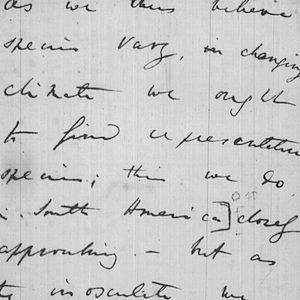-
-
Step-by-step course guide
-
What you will learn in this course
-
About the course: David Kinney & Simon DeDeo
-
Introducing the course Teaching Assistant
-
Join the discussion
-
-
-
Introduction to Humanities Analytics
-
-
-
-
Analyzing "Excellence" in the Humanities
-
-
-
-
-
-
Case Study: Capitalism & Democracy
-
Chapter 5 part 1 Overview
-
The Marriage of Capitalism & Democracy part 1
-
Test Your Knowledge part 1
-
Test Your Knowledge part 1: Explanations
-
Chapter 5 part 2 Overview
-
The Marriage of Capitalism & Democracy part 2
-
Test Your Knowledge part 2
-
Test Your Knowledge part 2: Explanations
-
Assignment: Case Study: Capitalism & Democracy
-
-
-
-
-
Measurement & Operationalization
-
-
-
A Philosophical Approach to Probability
-
-
-
Guest Lecture: Marco Buongiorno Nardelli
-
-
-
-
-
Guest Lecture: Nan Z. Da
-
-
-
Wrap-Up
-
What's Next
-
15.1 Guest Lecture: Nan Z. Da » Lecture Overview
The goal of this guest lecture
As with all guest lectures, the aim is to inspire you by providing exemplars of Humanities Analytics projects. However, this guest lecture is distinct from the others in that the lecturer's primary aim is to critique, rather than to apply, certain humanities analytics techniques. In particular, Nan Z. Da argues that many projects in cultural analytics and digital humanities use very small sample sizes, and exploit the ambivalence that literary criticism allows with respect to the interpretation of text to allow practitioners to draw strong conclusions from whatever results they happen to produce. She also points out several difficulties that arise when attempting to measure bias; these kinds of measurements are increasingly common in humanities analytics practice, but (Da argues) are often not conceptually well-grounded. Finally, she argues that many measures in cultural analytics assume a "utilitarian" structure in which authors and readers alike aim to solely to achieve some set of aims, and the value of authorial intent in achieving those aims is irrelevant.
Key terms to keep in mind
Alibis In a legal context, an alibi is a (possibly true) story that a defendant provides which explains why they could not have committed a crime. In literary criticism, it is sometimes argued that many narratives are best understood as attempts by authors and characters alike to provide alibis for their own moral shortcomings. Da argues that this is the sort of thing that it is difficult for humanities analytics techniques to measure.
Moral intelligence An understanding (on the part of a character, author, or critic) of how malevolence, benevolence, bias, and other forms of morally-loaded intentions actually play out in the world.
Lexical data Data composed primarily or entirely of words.
Positivism A philosophy of science that argues that the meaning of any sentence (if it has a meaning) is identical to the means by which the truth or falsehood of that sentence can be tested. In her lecture, Da is criticizing the positivist foundations that (she argues) many humanities analytics projects take for granted.
Metadata Data that is not part of a corpus itself but is used to distinguish different parts of a corpus from each other. For example, in a corpus of novels, the data would be the words in the novels themselves and the metadata would be the title of each novel, the year each novel was written, the author of the novel, etc.
Utilitarian structures Systems in which the value of an action, including a speech-act such as writing a novel or poem, is determined entirely by the extend to which it brings about preferred consequences according to someone's preferences. In a utilitarian structure, Da argues, the intent of different actors when they act plays no role in the moral valence of their action.
